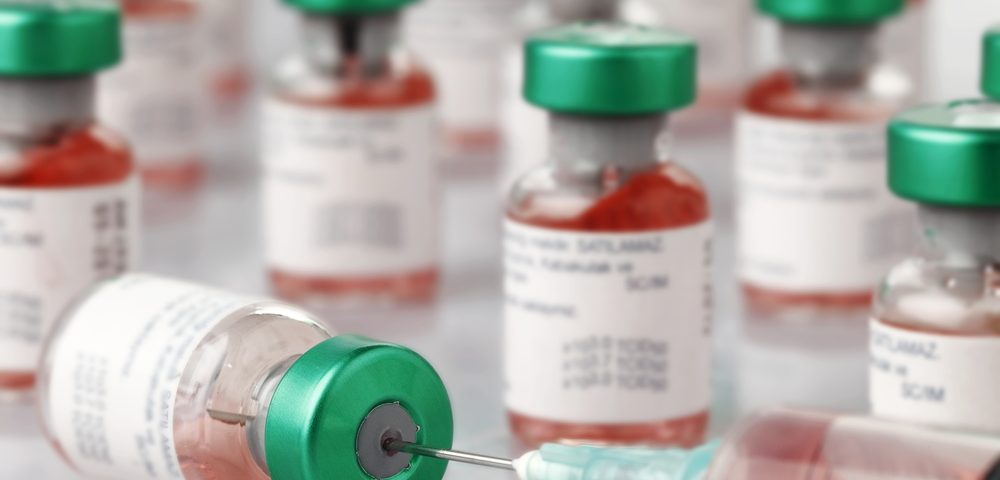Vaccines containing specific molecules expressed by breast cancer cells can alert the immune system for the presence of the cells and trigger a response to eliminate them, according to a study published in the journal OncoImmunology.
The study, titled “Proof Of Concept Study With An HER-2 Mimotope Anticancer Vaccine Deduced From A Novel AAV-Mimotope Library Platform,” was conducted by Austrian researchers.
The immune system works by detecting several proteins present at the surface of bacteria and viruses, attacking them. Cancer cells also have proteins located at the cell surface, but the immune system does not recognize them as harmful, because they are produced by the person’s own body.
Researchers have argued that vaccinations containing imitations of cancer proteins, called mimotopes, can alert the immune system to the presence of cancer cells that express these molecules, thereby stimulating an immune response toward these cells. Vaccines against several types of cancer can be created by producing mimotopes that mimic the molecules produced by each cancer cell type.
However, the immune system cannot be alerted by the presence of the imitation molecules alone – again, because they are similar to those produced by the person’s own body. Mimotopes have to be bonded to a carrier that triggers an immune response itself. Because the carrier is external to the body, the immune system will be activated. Because the carrier is linked to the mimotopes, the immune system will think those molecules belong to the invading carrier and must be targeted. This method thus tricks the immune system into fighting molecules that were originally silent to it.
Mimotopes have been chemically bounded to a carrier, but that method reduced the effectiveness of the vaccine by inducing changes in the structure of the molecules.
In this work, researchers tested virus-like particles of harmless adeno-associated viruses (AAV) , which cannot trigger a viral disease, as carriers, as this method does not induce changes in the mimotopes.
“After specifically selecting mimotopes with antibodies, we get a full vaccine ready to use,” Erika Jensen-Jarolim, the senior author of the study, said in a news release.
To test this method, researchers produced a vaccine containing a mimotope produced by 30% of human breast cancers, the protein HER2, which stimulates cancer growth and survival. Mice vaccinated with this mimotope were significantly protected against growing tumors expressing this molecule, whereas non-vaccinated mice developed breast cancer.
Another great advantage of this method is that, contrary to the injection of antibodies against proteins produced by cancer cells (which will act only at that moment and need further repeating to kill cancer cells), these vaccines induce the body’s own production of antibodies against these proteins, inducing a long-term immune protection against cancer.
“For this reason, a vaccination with mimotopes might also serve as a prophylaxis [prevention] for high-risk patients,” said Jensen-Jarolim. “Similar to other vaccinations, the immune system remembers the administered structures. When a protein is more abundant on the cell surface of tumor cells, the immune system has already been sensitised and will react,” she said.
The results obtained in this study support that these vaccines can potentially protect high-risk patients and provide additional protection to breast cancer patients who received prior therapies.

